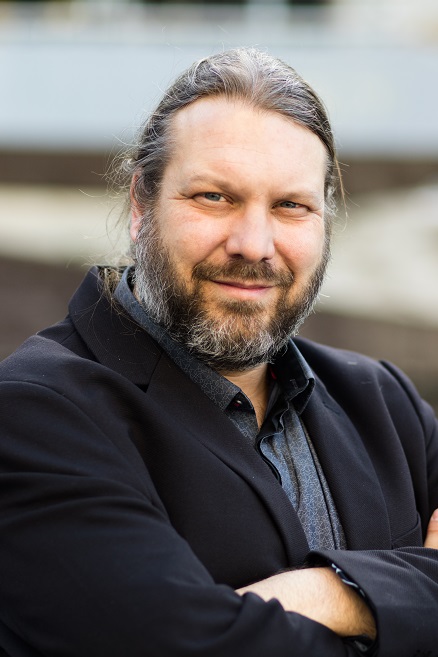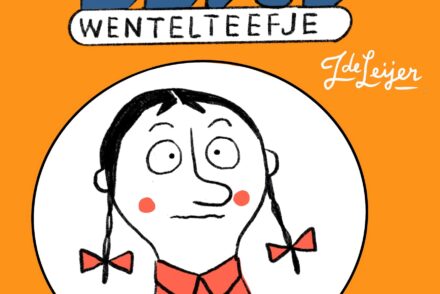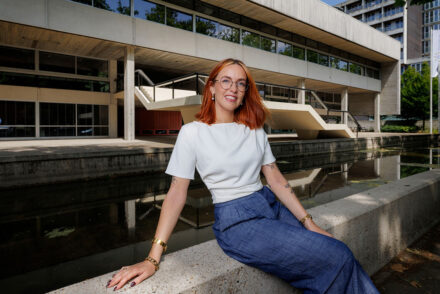Southern Educational Alliance: ‘We educate people who are becoming an absolute rarity’
The increasing teacher shortage is making it increasingly difficult for schools to find teachers. This problem is no longer confined to the Randstad but applies to the whole of the Netherlands. Reason enough for the southern universities and universities of applied sciences to join forces in searching for regional solutions. Univers talked about it with Associate Professor and Vice-Dean for Education (TSHD) Sander Bax.
To combat the shortage of teachers, southern universities and universities of applied sciences, including TU Eindhoven, Fontys, Avans, and Tilburg University, have recently been working together intensively in the Zuidelijke Educatieve Alliantie (Southern Educational Alliance (ZEA)). This regional collaboration is part of the Administrative Agreement on Flexibilization that the Ministry of Education, Culture and Science concluded with the Universities of the Netherlands and the Association of Universities of Applied Sciences.
Sander Bax, literature scholar, teaching methodologist for Dutch as a subject and Vice-Dean for Education at TSHD, represents Tilburg University in this alliance on behalf of the Tilburg Center of the Learning Sciences.
What does the teacher shortage mean specifically?
“Fewer and fewer students are graduating from teacher training programs while the need for teachers is growing. We have been experiencing a major aging of the population for at least a decade. A significant group of teachers who entered teaching in the 1970s and 1980s are now retiring. What you also see is that starting teachers quickly drop out again. One of the reasons for this is the difficult working conditions and the high work pressure.
“For a long time, primary education was able to solve this with a flexible pool of substitutes, but this has now often dried up. In very concrete terms, this means that there are schools that send classes home because no teacher can be found.
“In secondary schools, it has not come to that yet, but there you see a lot of unqualified people teaching. There comes a point when for certain subjects like French and German we just do not have teachers anymore. The enrollments for those programs are really minimal. That is going to have enormous consequences for our education in the coming years.”
To what extent does the teacher shortage play out in the south of the Netherlands?
“In the southern region you have a tension between urban areas that are developing, around Tilburg and Eindhoven, and the shrinking regions. For a long time, the shortage manifested itself a bit more slowly than in the Randstad areas, but we can now clearly see that, for certain subjects, we are seriously beginning to feel the pinch.
“In my field, Dutch, there are very many job openings and very few candidates. Our students get at least three or four job offers six months before they graduate. We are really educating people who are becoming an absolute rarity. Dutch is a core subject, if it is already difficult to find teachers for this subject, then you have a big problem as a region.”
Is addressing the teacher shortage an important issue for Tilburg University?
“The Executive Board’s Strategy states that training good teachers for the region is a core mission of the university. We think it is very important to have university-trained teachers. They bring something of the academic knowledge and insights into the schools. Many of the generation of teachers from the 1970s and 1980s were academically trained, but student numbers at university teacher training programs have been declining significantly for about ten years.
‘These days, most teachers come from university of applied sciences programs‘
“The ratio of teachers trained at a university vs. university of applied sciences shifted in recent decades from about 40/60 percent to 10/90 percent. So today, most teachers come from university of applied sciences programs.
“In the last couple of years, we have seen that the enrollment in universities of applied sciences is also decreasing, so now it is decreasing across the board. That means we all have to think about how to get those numbers back up. As a university, we think this is very important, but we cannot conjure up students. In the coming years, therefore, we must make good plans to increase that intake without losing quality.”
What teacher education programs does Tilburg University offer?
“Students can choose the subjects (in Dutch): Dutch, Philosophy, Social Studies and Social Sciences, Economics and Business Economics, and Religion and Philosophy. TISEM, TSB, TST, and TSHD are all involved.
“The Tilburg University ‘s Academic Teacher Training Program has been in existence for about ten years now, making it the very youngest in the Netherlands. We started it when it became clear that the number of academically trained teachers graduating was declining.”
In what way does the Southern Educational Alliance want to combat the teacher shortage in the southern Netherlands? What are your plans?
“We are going to bet on a number of things. For someone who wants to become a teacher, it is not always clear what the best place is. They usually call Fontys rather than Tilburg University, but perhaps that specific person is more suitable for a course that we offer. We are going to cooperate with each other in this area as well, in the form of a joint information desk. Do you want to become a teacher? Then we are ready with open arms to explore together what kind of program suits you and at which institution.
“We not only want to train new teachers, but also do all kinds of things for current teachers. Dropout is a big problem in education, so you want the people who work there to be able to develop and remain enthusiastic about practicing that profession. We are going to take stock of what forms of professionalization already exist, and we want to create new opportunities. We have already started doing this in our Tilburg Center of Learning Sciences (in Dutch). There we offer all kinds of professionalization activities, we supervise teachers, and we do (joint) educational research.
‘Government should make all teacher training programs free’
“In addition, we are going to coordinate a number of things better. At a school such as the Odulphus here in Tilburg, they may have Dutch-language interns from Tilburg University, a biology intern from Fontys, a geography intern from Radboud, and a gymnastics student from Avans. If we coordinate our deadlines and assessment forms better at the front, schools will have less work and students will be able to progress better.”
How do you plan to enthuse students to become a teacher?
“I think that is the most difficult task. Because how are you going to persuade young people of seventeen/eighteen to go into teaching, when you can do so many other wonderful things? We have a pallet of wonderful interdisciplinary studies that might be more exciting to a student than teacher training.

“So how do you get students interested in doing that bit of teaching as well? That is something that we in Tilburg are working hard on. We want to make it interesting for students from as many study programs as possible to become teachers.
“For instance, we do not offer a classical Dutch teacher training program, but a program for communication students and a program for culture students. They can develop into teachers of Dutch via a special pathway with relevant courses.
“Such a broadly trained teacher of Dutch, who in addition to the classical subjects has also learned everything about media culture, communication and cognition, digitalization, and globalization, is also very interesting for the professional field.
“I also think it should be easier to make the transition to the classroom later in your career. At the moment, these are often very complicated or expensive processes, which causes people to drop out. I actually think that the government should make all teacher training programs free of charge. If we really think this problem is important, then you can simply invest in it.”
Students can find work anywhere in this tight job market, is that another limiting factor?
“I think so, we started our education here in Tilburg in the aftermath of the economic crisis of 2008. The first-time round, we had very good student numbers. That was related to that crisis actually. So, I sometimes said cynically: what we really need is a hard financial crisis. Whether we like it for other parts of our lives is, of course, another matter, but for the teacher shortage, it might be very good.”
Translated by Language Center, Riet Bettonviel






